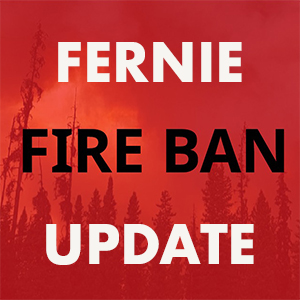
It’s Fire Prevention Week 2022 from October 9 to 15th. The theme set out by the National Fire Protection Association for 100th anniversary of Fire Prevention Week:
“Fire won’t wait. Plan your escape.”
It is important for everyone to have and practice a home fire escape plan. Everyone needs to be prepared in advance, so they know what to do when the smoke alarm sounds.
Here are some steps you can take to prepare your home and family in case of an emergency:
Home escape planning
• Draw a map of your home, marking two ways out of each room, including windows and doors.
• Children, older adults, and people with disabilities may need assistance to wake up and get out. Make sure they are part of the plan, and someone will help them.
• Make sure all escape routes are clear and that doors and windows open easily.
• Pick an outside meeting place (something permanent like a neighbour’s house, a light post, mailbox, or stop sign) that is a safe distance in front of your home where everyone can meet.
• Everyone in the home should know the local emergency number and how to call once safely outside.
• Practice! Practice! Practice! Practice day and night-time home fire drills.
Smoke alarms
• Install smoke alarms in every sleeping room and outside each separate sleeping area. Install alarms on every level of the home. • Install alarms in the basement. Large homes may need extra smoke alarms.
• Consider interconnected smoke alarms. When one smoke alarm sounds, they all sound.
• Test all smoke alarms at least once a month. Press the test button to be sure the alarm is working.
• A smoke alarm should be on the ceiling or high on a wall. Keep smoke alarms away from the kitchen to reduce false alarms. They should be at least 10 feet (3 meters) from the stove.
• People who are hard of hearing or deaf can use special alarms. These alarms have strobe lights and bed shakers.
• Replace all smoke alarms when they are 10 years old.
For more fire prevention tips, click here.
Our annual firefighter recruitment drive is on now. Being a paid-on-call firefighter gives you the satisfaction of knowing you’re making a difference in your community, provides you with training in everything from medical response to fighting fires, and is an opportunity to truly give back.
To learn how you can become a part of the RDEK’s Rural Fire and Rescue Service, click here or contact your local fire department.
























